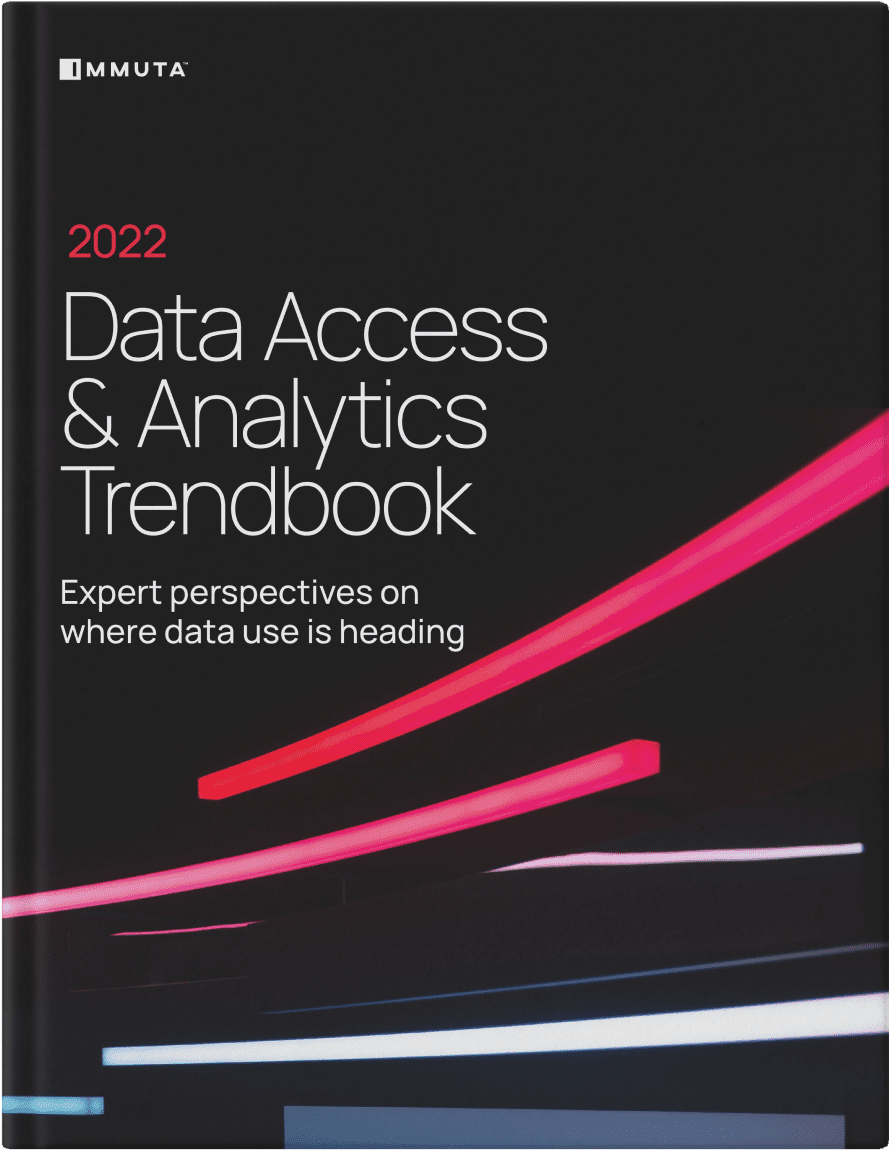2022 Data Access & Analytics Trendbook
Expert perspectives on where data use is heading


The terms ‘data intelligence’ and ‘data analytics’ may as well be enshrined in marble for any modern business looking to capitalize on the power of information. But does your business have a handle on what data intelligence and data analytics are, and more importantly, what they mean for your company?
The first step in embracing the power of data is collecting information. But there are important steps that must be taken in order to turn collected data into something legible, actionable, and powerful. That’s where data intelligence and data analytics come into play — and the most successful organizations know how to leverage both for their data strategy.
In this brief guide, we’ll explore the differences between data intelligence and data analytics, their ability to transform businesses, and how they can help make your data work smarter, harder, and better for you.
Ask 10 different data experts for a data intelligence definition, and you may get 10 slightly different answers.
In general, data intelligence is the practice of turning raw data into data insights. Or, even more simply, it’s the process of making data useful.
In practice, that might mean transforming raw data into easy-to-understand charts and graphics. It may also mean AI-powered processes that scan through huge data sets to pull out only the most useful and relevant information. After all, businesses now deal with such massive collections of data that it’s unrealistic to expect one or even many humans to comb through it all and determine its meaning.
But once data intelligence has been applied to make raw data more useful, where does data analytics come in?

Expert perspectives on where data use is heading
Data intelligence is sometimes described as simply a collection of all the data you have. But that’s not entirely accurate. After all, a two-year-old looking at a chalkboard with the ABCs written on it has data, but that doesn’t mean the toddler has intelligence on that data — unless they’re particularly advanced, they can’t derive meaning from those letters.
Data intelligence is the process of presenting data in a way that’s meaningful to and interpretable by decision makers and stakeholders. This process can be done manually or automatically using AI, machine learning, or a combination of the two.
Data analytics, on the other hand, is the process of analyzing that data to make predictions and take action based on what it is telling you.
Here’s another way of looking at it. Data intelligence collects and inspects data about actions, events, and other information to determine what happened in the past and why. Data analytics uses this same data and applies data science and analytics techniques to predict what will happen in the future — then make business decisions based on that data.
Say your business launched a product last quarter, and sales from that product launch have just come in. You have quantitative data about how many product units were sold, where they were sold, and who bought them, and qualitative information like reviews that buyers left about your product, marketing campaigns supporting it, and other relevant data. That’s all important information with a high degree of business value.
In this scenario, data intelligence would involve looking at all of this historical data and determining, “A, B, and C are reasons why we sold the amount of products we did last quarter, and X, Y, and Z are the important takeaways from that launch.”
Data analysis would take all of that information, as well as more up-to-date data about the market in which you operate, in order to create a prediction about the future and take action so that you’re able to sell even more products next quarter.
Let’s look at a real-world example of data intelligence at work.
A certain large organization is seeking to promote greater transparency and reduced risk for investors in sustainable energy, a vital mission with global ramifications. They use data intelligence to create machine learning models, which constantly compare the past value of power companies with their present performance to create up-to-the-minute risk assessments for investors to use in their decision-making.
Deep learning is an essential aspect of data intelligence, and this use case also speaks to an important aspect of data management — security. Data access control is vital for companies that handle a large volume of potentially sensitive data, such as investor data, and need to keep access to it secure and carefully monitored.
How does data intelligence compare to data analytics in the real world?
Consider a manufacturing company seeking to minimize equipment downtime due to damage, repairs, errors, and part delivery wait times. With the power of data analysis, machine learning algorithms can combine data such as equipment make, model, and year, log entries, sensors data, error messages, and usage rates, to develop a system of predicting when certain machines will need maintenance — before they fail.
This use of data analysis helps optimize maintenance schedules, reduce machinery downtime, and minimize lost profits due to production delays.
For many organizations, the first step in data intelligence and data analytics is better visibility, security, and management of their data. And for many businesses, that starts with Immuta.
Immuta is an industry-leading provider of universal cloud data access control, providing organizations worldwide with automated sensitive data discovery and classification, fine-grained access control, dynamic data masking, and policy enforcement and auditing that works across cloud data platforms. From financial services and healthcare to manufacturing and the public sector, we’ve helped countless clients get a better, more secure handle on their data so they can maximize its value with the confidence that they are fully compliant.
Are you ready to discover what Immuta can do for your business?
Innovate faster in every area of your business with workflow-driven solutions for data access governance and data marketplaces.